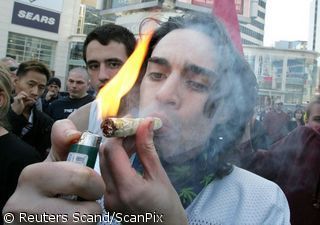Italy's presidential pardon of Mehmet Ali Agca, the Turk who tried to kill Pope John Paul II in 1981, has reminded Bulgarians of their own link to the event.
Published:
18 June 2000 y., Sunday
Italy's presidential pardon of Mehmet Ali Agca, the Turk who tried to kill Pope John Paul II in 1981, has reminded Bulgarians of their own link to the event, a withdrawn man jailed for three years before he was released for lack of evidence.
The Bulgarian angle to conspiracy theories on the assassination attempt involved Sergei Antonov, at the time the deputy representative in Rome of Balkans airlines, Bulgaria's national carrier. He has since become a ghost even in his own country, although he still works for the company.
Antanov was arrested in Rome in 1982, after Agca asserted that the airline official had given him the pistol used to attack Pope John Paul II in Saint Peter's square. Two other Bulgarians also named by Agca -- a military attache and an accountant from the Bulgarian embassy in Rome -- were never arrested.
On Friday, Agca created a stir at a court appearance in Istanbul on murder charges for the 1979 killing of Turkish journalist, for which he was condemned to death.
"I am not the killer of Abdi Ipekci. I was an actor in this scenario. I was playing the part of the murderer," Agca told a packed courtroom before a judge warned him not to speak without being given the floor.
During that time, Bulgaria denounced what it branded a plot by the US intelligence agency, the CIA, to implicate Sofia, at the time a close ally of Moscow. It denied each of Agca's allegations, which were contradictory and could not be proved in court.
Copying, publishing, announcing any information from the News.lt portal without written permission of News.lt editorial office is prohibited.
The most popular articles
 75 years after Moscow first opened its underground train system, Muscovites can ride a restored vintage train.
more »
75 years after Moscow first opened its underground train system, Muscovites can ride a restored vintage train.
more »
 A glacier melt threatens to cause massive flooding and destroy a centuries old monastic fortress in the remote country of Bhutan.
more »
A glacier melt threatens to cause massive flooding and destroy a centuries old monastic fortress in the remote country of Bhutan.
more »
 What do countries as geographically diverse as Saudi Arabia, Uganda and Jamaica have in common? All of them criminalised homosexuality.
more »
What do countries as geographically diverse as Saudi Arabia, Uganda and Jamaica have in common? All of them criminalised homosexuality.
more »
 Human rights is a key issue for the European Parliament and MEPs Monday took a first look at what the European Union did last year, when they discussed the EU annual report on human rights in the world.
more »
Human rights is a key issue for the European Parliament and MEPs Monday took a first look at what the European Union did last year, when they discussed the EU annual report on human rights in the world.
more »
 Researchers found high levels of mecury in a Japenese dolphin-hunting town, but say the mecury has no ill effects.
more »
Researchers found high levels of mecury in a Japenese dolphin-hunting town, but say the mecury has no ill effects.
more »
 Crowds of Mexicans marched peacefully through the capital city on Saturday demanding the legalisation of marijuana.
more »
Crowds of Mexicans marched peacefully through the capital city on Saturday demanding the legalisation of marijuana.
more »
 Prisoners are reported to have dramatic improvements in behaviour after pets are introduced in a new scheme.
more »
Prisoners are reported to have dramatic improvements in behaviour after pets are introduced in a new scheme.
more »
 Israeli Ultra-Orthodox MPs are lining up against activists proposing a total ban on furs, saying traditional fur hats are an important part of their religious tradition.
more »
Israeli Ultra-Orthodox MPs are lining up against activists proposing a total ban on furs, saying traditional fur hats are an important part of their religious tradition.
more »
 EU Member States should organise social protection, including at least 14 weeks' maternity allowance, for self-employed women and self-employed men's wives or life partners, in accordance with national laws, said the Women's Rights Committee on Tuesday.
more »
EU Member States should organise social protection, including at least 14 weeks' maternity allowance, for self-employed women and self-employed men's wives or life partners, in accordance with national laws, said the Women's Rights Committee on Tuesday.
more »
 How are the European Parliament, the European Commission and other parts of the European Union supposed to interest people and explain their work?
more »
How are the European Parliament, the European Commission and other parts of the European Union supposed to interest people and explain their work?
more »